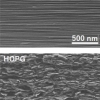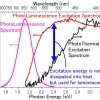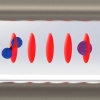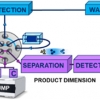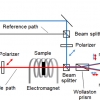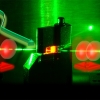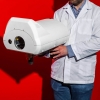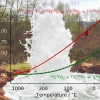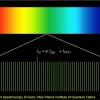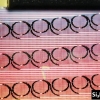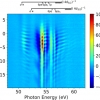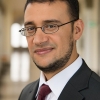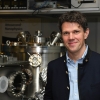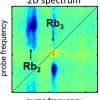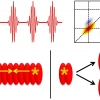News
Laser Spectroscopy News
The interplanar bond strength of graphene has been evaluated by measuring the elastic constant of graphite, demonstrating that the elastic constant of monocrystalline graphite was above 45 GPa, higher than conventionally believed.
A type of photothermal spectroscopy is being used to measure thermal energy to understand more about the processes of energy-converting systems like leaves during photosynthesis.
Applications are invited for these prestigious awards administered by the Association of British Spectroscopists (ABS) Trust.
Researchers of the University of Basel have developed a new method with which individual isolated molecules can be studied spectroscopically without destroying the molecule or even influencing its quantum state.
A new research project in partnership between academia, companies and the Netherlands Forensic Institute to develop ways to chain analytical techniques together to gain complementary information.
Scientists at the Laboratory for Attosecond Physics have developed a unique laser technology for the analysis of the molecular composition of biological samples.
A prototype of a greatly improved magneto-optic effect measurement device using dual-comb spectroscopy.
Physicists from the University of Bayreuth and the University of Göttingen have discovered a new method for adjusting the extremely short time intervals between laser flashes with exceptional speed and precision.
Attosecond transient absorption spectroscopy has uncovered the interplay between light absorption and electronic screening which could lead to the development of future optoelectronic devices, energy-efficient electronics, magnetic memory devices, spintronics and new types of solar cells.
Together with partners from research and industry, Fraunhofer IAF has developed a hand-held, QCL-based scanner for hazardous substances as part of the CHEQUERS EU project.
For the first time it is possible to measure, simultaneously and with extreme precision, four rare molecular variants of carbon dioxide (CO2) using a novel laser spectrometer.
The ABS Trust is seeking applications for the Gordon F. Kirkbright bursary award and the new Edward Steers bursary, both open to early career scientists.
A review reports on developments and prospects in the field of atomic and molecular broadband spectroscopy with frequency combs.
Researchers in Switzerland and Russia have developed a miniature frequency comb (1 cm3) that can be mass produced.
Scientists from the Max Born Institute for Nonlinear Optics and Short Pulse Spectroscopy have carried out the first attosecond transient absorption spectroscopy (ATAS) experiment on a polyatomic molecule.
EU grant worth EUR 2 million for the development of a new approach in optical spectroscopy of the superheavy elements.
Matthias Kling is to head a new research group in Ultrafast X-Ray Imaging and Spectroscopy in the Laboratory for Attosecond Physics at the Max Planck Institute of Quantum Optics.
A research team from the University of Freiburg’s Institute of Physics has succeeded for the first time in applying 2D-spectroscopy to isolated molecular systems and thus in tracing the interactive processes at a molecular level more precisely.
Machine learning techniques using a combination of the layer clustering and decision tree methods aids prediction of spectra.
Generally, only the behaviour of a single excitation and its consequences are investigated in 2D spectroscopy, but new techniques are being developed using two excitations.

